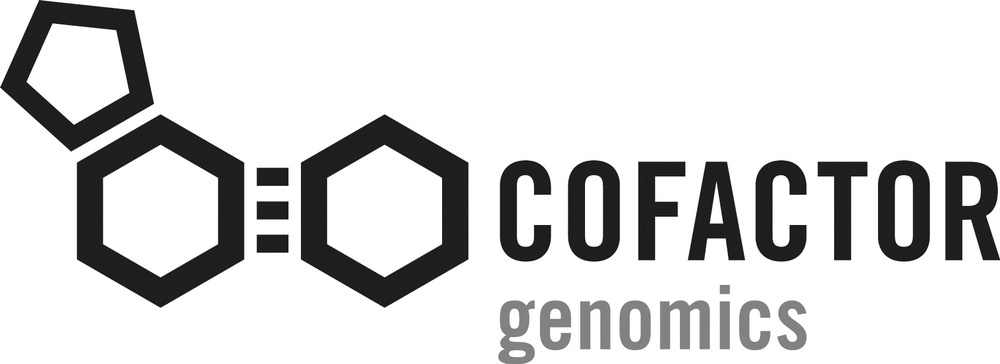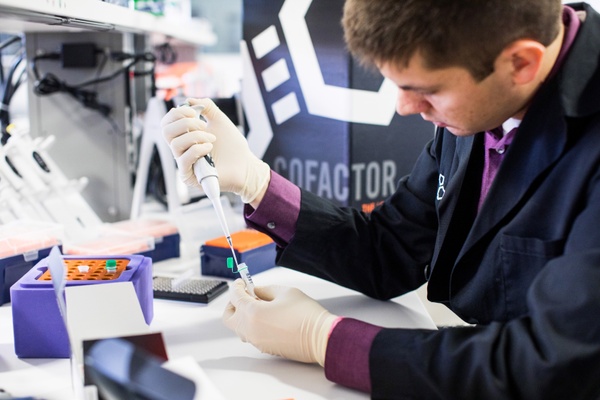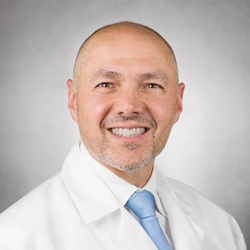SAN DIEGO, Calif.– SEPTEMBER 15, 2020 – Physicians at the University of California, San Diego (UCSD) School of Medicine and Cofactor Genomics, the company bridging the precision medicine gap, today announced a partnership aimed at improving a physician’s ability to predict tumor response to immunotherapy, specifically in recurrent and metastatic squamous cell carcinoma of the head and neck (RM-HNSCC). Guiding and prioritizing therapy selection is especially important given last year’s FDA approval of pembrolizumab as a first line treatment for RM-HNSCC. The partnership is championed by Ezra Cohen, MD, Chief of the Division of Hematology‐Oncology at the UCSD Moores Cancer Center, and leverages Cofactor’s recently-patented Predictive Immune Modeling technology.
The current clinical care pathway for recurrent and metastatic head and neck cancer patients relies on using underpowered, antiquated technologies for treatment decisions. New tools that provide physicians with higher confidence in therapy selection are needed.
“Predicting tumor response prior to treatment is a necessary part of the precision medicine challenge,” explained Dr. Cohen. “Working with immune checkpoint inhibitors, a class of therapies that are already approved and proven to work in a subset of patients, is a low-risk, high-reward approach.”
The terms of the partnership include providing Cofactor Genomics with access to patient specimens and clinical metadata, a resource well-curated by the team at UCSD. The data generated in this collaboration will further expand clinical evidence presented earlier this year by Washington University physicians, where Cofactor’s technology showed superiority over the incumbent PD-L1 IHC assay in predicting responders to therapy.
“Cofactor is approaching diagnostic development in a number of ways that are unique. Integrating multiple immune signals into a single clinical decision simultaneously simplifies and expands how we leverage this information,” noted Dr. Cohen.
Dr. Cohen is a global leader in this space, serving as Co-Director of the San Diego Center for Precision Immunotherapy, and leader of the Solid Tumor Therapeutics research program. He brings his expertise and an exceptional reputation in head and neck cancer research and patient care to solid tumor therapeutics. He has served as chair of the National Cancer Institute (NCI) Head and Neck Cancer Steering Committee (which oversees NCI-funded clinical research in this disease), currently chairs the SITC Cancer Immunotherapy Guidelines Head and Neck Expert Panel, and previously served on the Board of the Head and Neck Cancer Alliance.
“The UCSD Moores Cancer Center is well-recognized as both a leader in clinical research, and perhaps more importantly, patient care,” noted Natalie LaFranzo, PhD, Vice President of Market Development for Cofactor. “As Cofactor’s technology moves into clinical practice, partnerships with leaders in cancer care, such as Dr. Cohen, are an integral part of adoption.”
Multidimensional biomarkers have been described by many, including the Society for Immunotherapy of Cancer (SITC) Immune Biomarkers Task Force, as the ideal approach to obtaining a complete view of the tumor microenvironment, necessary for predicting immunotherapy response. Cofactor’s RM-HNSCC diagnostic development is the outcome of Predictive Immune Modeling, which leverages immune-specific multidimensional biomarkers. These biomarkers integrate the distinct differences in the tumor profile between the tumors of responders and non-responders to immunotherapy. RM-HNSCC is one of 16 indications approved for treatment with immune checkpoint inhibitors, the sum of which represents 50% of U.S. cancer cases annually. Predictive diagnostics are an integral part of achieving UCSD’s precision medicine goals, as supported by the Center for Personalized Cancer Therapy.
About Cofactor Genomics
Cofactor Genomics is bridging the precision medicine gap by building diagnostic tools to match the right patient to the right treatment at the right time. Predicting patient response to therapy currently relies on isolated, single-analyte biomarkers that have failed to deliver accurate therapy response predictions, resulting in unnecessary healthcare costs, and most harmfully, negative outcomes for patients. Cofactor’s products use Predictive Immune Modeling, which leverages RNA data and machine learning to combine biological signals, creating multidimensional biomarkers to deliver on the promise of precision medicine. Cofactor Genomics offers its full-service molecular, informatic, and database tools to make drug discovery, clinical trials and therapy selection more successful. Find out more about how Cofactor Genomics is revolutionizing precision medicine at cofactorgenomics.com.
About UCSD
UC San Diego Health, comprising a comprehensive health system throughout San Diego County, UC San Diego School of Medicine and Skaggs School of Pharmacy and Pharmaceutical Sciences, is one of five academic medical systems within the University of California system. We are committed to improving patient care while also researching new treatments and training tomorrow’s doctors and pharmacists. For more than 50 years, our renowned clinicians and scientists have made advances in numerous fields, including minimally invasive surgeries, personalized cancer therapy, cardiovascular treatment and surgery, transplantation and the early detection of autism. Our specialty patient care is consistently ranked among the nation’s best by U.S. News & World Report.





